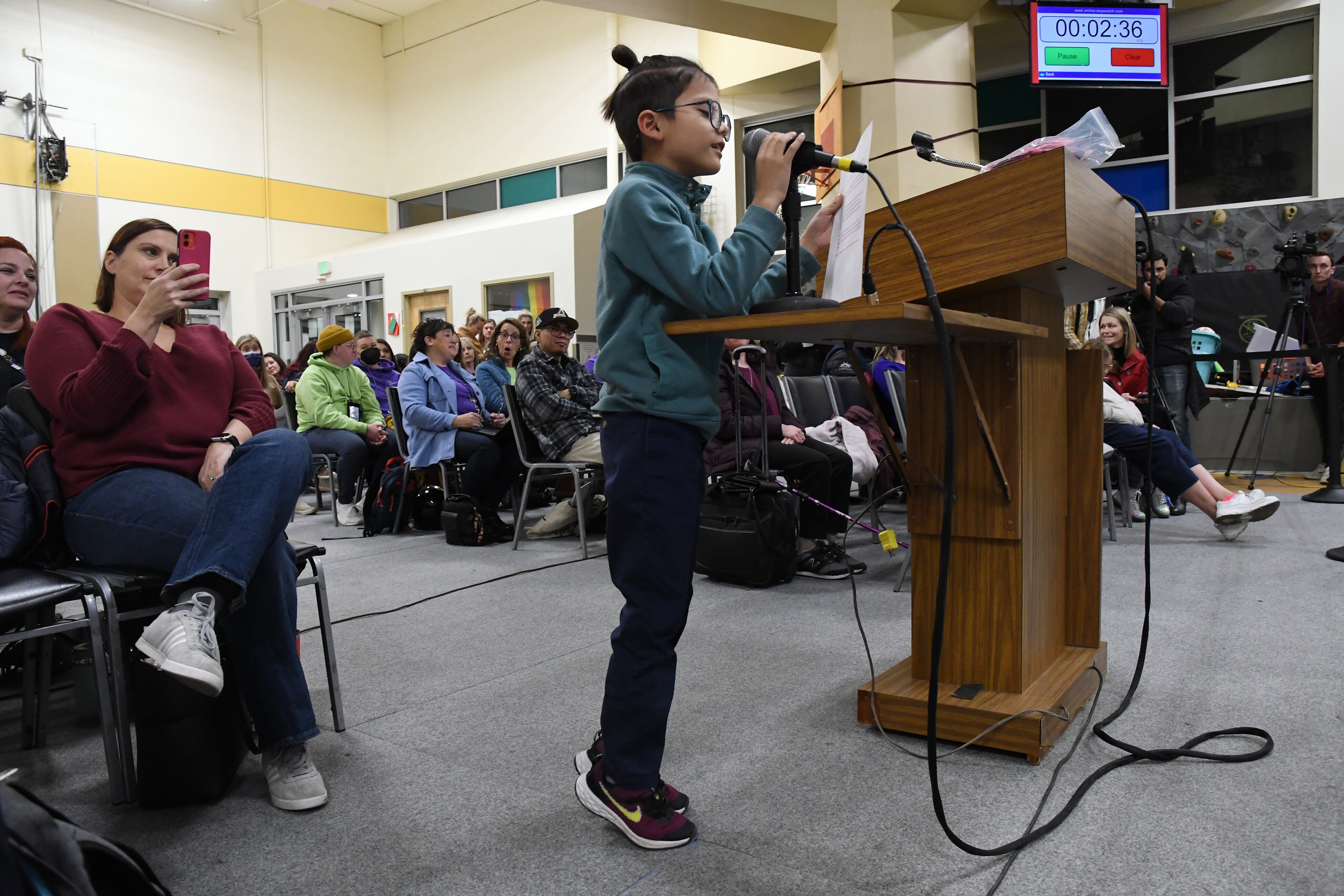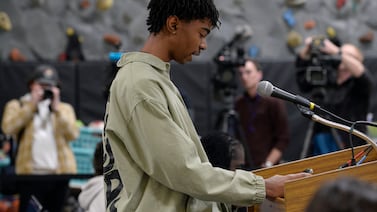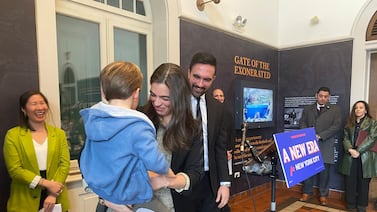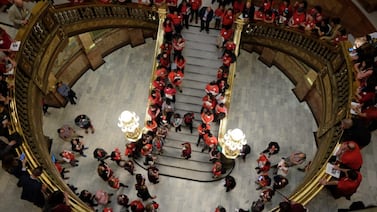Sign up for Chalkbeat Colorado’s free daily newsletter to get the latest reporting from us, plus curated news from other Colorado outlets, delivered to your inbox.
The Denver school board is considering a new approach to community engagement that would limit one way parents, teachers, and others can address the board while adding another.
The new limits would apply to the board’s monthly public comment session, where speakers can sign up to address the board for three minutes. Under a proposed policy, each speaker would get just two minutes instead of three.
But the biggest change would restrict speakers to talking about the topics on the board’s meeting agenda. No such topic limit exists now, and speakers often talk about a variety of issues ranging from the broad, such as school safety or mental health, to the specific, such as changes to their child’s bus route or a bullying incident at their school.
In proposing to limit the topics, board President Carrie Olson and Vice President Marlene De La Rosa said Thursday that they are trying to draw a line between policy issues that can be addressed by the board and operational issues that are the responsibility of the superintendent.
“We want to hear from people,” Olson said. “And we want to make sure our meetings are more streamlined and efficient so we can focus on the task at hand without silencing voices.”
At the same time the board is considering a new public comment policy, members are finalizing plans to hold 10 “community cafes” each school year, one per semester in each of the five board districts in southwest, northwest, southeast, northeast, and central Denver.
The community cafes would be an opportunity for city residents to talk to board members in a more conversational way than at public comment, during which the board doesn’t engage in dialogue with the speakers. Child care and language interpretation would be provided at the community cafes, and board members said they want to allow virtual participation, too.
Interpretation is currently provided at public comment, but child care is not.
Community engagement has long been a sore spot for Denver Public Schools. Students and parents have for years accused the state’s largest district of not listening to their concerns, soliciting feedback in a performative way, and rushing to make decisions.
The board does not currently have a formalized way to meet with community members. A board policy passed in 2022 and updated in June calls for members to conduct “proactive” community engagement. The community cafes are the board’s plan to do that.
The board could hold its first community cafe as soon as next month, according to the plan. Doing so would not require a board vote, since the policy is already in place.
But changing the public comment policy would require a vote. Board President Olson and Vice President De La Rosa presented a proposed policy Thursday, but the board didn’t discuss or vote on it because other members said they hadn’t had enough time to review it.
The proposal calls for the new public comment rules to go into effect in January.
The current public comment rules have been in place since last September. At that time, then-board president Xóchitl “Sochi” Gaytán announced that the board would temporarily limit public comment to two hours while it came up with a more permanent policy. Gaytán said the temporary limits were meant to address the problem of too-long meetings.
Olson and De La Rosa said their proposal is based partly on the public comment policies of other Colorado school boards. In addition to limiting each speaker to two minutes and restricting the topics to those on the board’s meeting agenda, the proposal would:
- Eliminate the temporary two-hour limit for public comment.
- Limit to 30 minutes the total amount of time speakers could address a single topic. This would be the same as the temporary rules. In years past, there was no limit.
- Allow groups of speakers five minutes to address the board. In years past, groups of speakers were allotted 10 minutes. Under the temporary rules, groups are not allowed.
- Allow speakers to address the board in person or virtually. The temporary rules do not allow for virtual public comment, which became popular during the pandemic.
Melanie Asmar is the bureau chief for Chalkbeat Colorado. Contact Melanie at masmar@chalkbeat.org .





